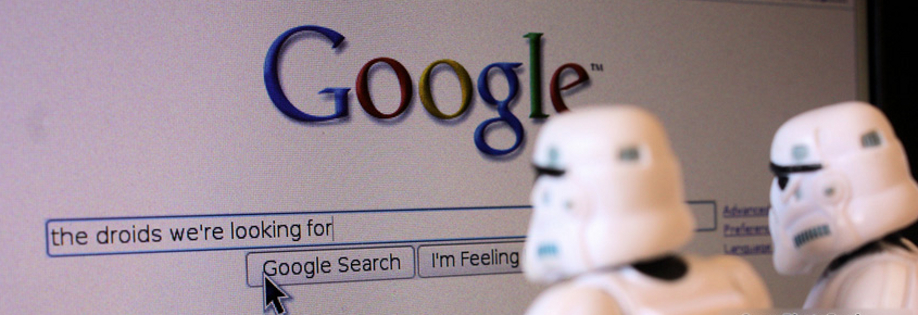Despite the rise in apocalyptic claims about the longevity of search engine optimization, SEO probably isn’t going anywhere, especially not in the next few years. It will, however, continue to evolve as more and more information is known about searchers, their behavior, and the internet itself. Over just the last decade, we have seen a few significant changes to Google and how it works, including Google Instant, more personalized search, universal search, etc.

There have been serious changes to the algorithm, and in tandem with those, major changes to search engine optimization. Over the next decade, we are likely to see the same number, if not more, of significant changes. One of the biggest changes is happening right now, as voice search becomes the norm. There is a big difference between how people search for something using an auditory command, through Siri, Cortana, and Google Now, and how they search even just by typing out a query into a mobile app.
Search on a whole has also started to change. What people search for and where they search for those things has started to change. Google is no longer the first and last stop when someone has a question online. Instead, Amazon is the search engine for products, Spotify for music, IMDB for movies, Facebook for news, and Yelp for places to eat or drink. This sort of segmentation is sure to change the future of SEO and the future of Google Search.
We’re also looking at untold possibility when it comes to content and information discovery. Are there going to be advancements in how we find and consume information? These sorts of changes would definitely affect Google search.
 There is also the possibility that search engines will have to start functioning with their own morality. It is easier than ever (and will only become easier and easier) to cherry pick information, facts, data, and opinions. There will likely need to be some way to measure the accuracy of information being presented. Will that be something that search engines will need to do? How will they determine the “right” answers to questions asked by searchers? How will the further dissemination of knowledge, both accurate and inaccurate (because, as we all know, there is just as much inaccurate information online as there is accurate information)?
There is also the possibility that search engines will have to start functioning with their own morality. It is easier than ever (and will only become easier and easier) to cherry pick information, facts, data, and opinions. There will likely need to be some way to measure the accuracy of information being presented. Will that be something that search engines will need to do? How will they determine the “right” answers to questions asked by searchers? How will the further dissemination of knowledge, both accurate and inaccurate (because, as we all know, there is just as much inaccurate information online as there is accurate information)?
So what is the future of Google Search? What does it look like? The truth is that no one can really predict what major changes will be made to Google over the next ten years. There are simply too many factors to take into account. One of the most major changes that searchers would like to see, for example, is a more sophisticated and useful image search, one that allows them to take a picture of something and get information about that item.
There are some questions, however, that can help those who want to keep their SEO updated over the coming years to keep up with searching trends. They are:
2. What do I need to do to help my target audience find my website?
3. How can I make sure I am making the right impression on my intended audience?
4. How can I make my appearance in their purchasing process as seamless as possible?
5. How can I make a higher ratio of returns off of my advertising budget?
6. What determines how I appear and where I appear in Google’s search results?
7. How can I change or influence those factors so that I have the highest possible ranking in search results?
8. What tools can I use to measure how effective my search campaigns are?
As technology continues to advance, at a faster and faster rate, Google search will continue to advance as well. It is more important now than ever before that you are on top of these evolutions and that your SEO has a good foundation and is constantly being refreshed.
Despite the rise in apocalyptic claims about the longevity of search engine optimization, SEO probably isn’t going anywhere, especially not in the next few years. It will, however, continue to evolve as more and more information is known about searchers, their behavior, and the internet itself. Over just the last decade, we have seen a few significant changes to Google and how it works, including Google Instant, more personalized search, universal search, etc.

There have been serious changes to the algorithm, and in tandem with those, major changes to search engine optimization. Over the next decade, we are likely to see the same number, if not more, of significant changes. One of the biggest changes is happening right now, as voice search becomes the norm. There is a big difference between how people search for something using an auditory command, through Siri, Cortana, and Google Now, and how they search even just by typing out a query into a mobile app.
Search on a whole has also started to change. What people search for and where they search for those things has started to change. Google is no longer the first and last stop when someone has a question online. Instead, Amazon is the search engine for products, Spotify for music, IMDB for movies, Facebook for news, and Yelp for places to eat or drink. This sort of segmentation is sure to change the future of SEO and the future of Google Search.
We’re also looking at untold possibility when it comes to content and information discovery. Are there going to be advancements in how we find and consume information? These sorts of changes would definitely affect Google search.
 There is also the possibility that search engines will have to start functioning with their own morality. It is easier than ever (and will only become easier and easier) to cherry pick information, facts, data, and opinions. There will likely need to be some way to measure the accuracy of information being presented. Will that be something that search engines will need to do? How will they determine the “right” answers to questions asked by searchers? How will the further dissemination of knowledge, both accurate and inaccurate (because, as we all know, there is just as much inaccurate information online as there is accurate information)?
There is also the possibility that search engines will have to start functioning with their own morality. It is easier than ever (and will only become easier and easier) to cherry pick information, facts, data, and opinions. There will likely need to be some way to measure the accuracy of information being presented. Will that be something that search engines will need to do? How will they determine the “right” answers to questions asked by searchers? How will the further dissemination of knowledge, both accurate and inaccurate (because, as we all know, there is just as much inaccurate information online as there is accurate information)?
So what is the future of Google Search? What does it look like? The truth is that no one can really predict what major changes will be made to Google over the next ten years. There are simply too many factors to take into account. One of the most major changes that searchers would like to see, for example, is a more sophisticated and useful image search, one that allows them to take a picture of something and get information about that item.
There are some questions, however, that can help those who want to keep their SEO updated over the coming years to keep up with searching trends. They are:
2. What do I need to do to help my target audience find my website?
3. How can I make sure I am making the right impression on my intended audience?
4. How can I make my appearance in their purchasing process as seamless as possible?
5. How can I make a higher ratio of returns off of my advertising budget?
6. What determines how I appear and where I appear in Google’s search results?
7. How can I change or influence those factors so that I have the highest possible ranking in search results?
8. What tools can I use to measure how effective my search campaigns are?
As technology continues to advance, at a faster and faster rate, Google search will continue to advance as well. It is more important now than ever before that you are on top of these evolutions and that your SEO has a good foundation and is constantly being refreshed.
Published on December 18, 2015

